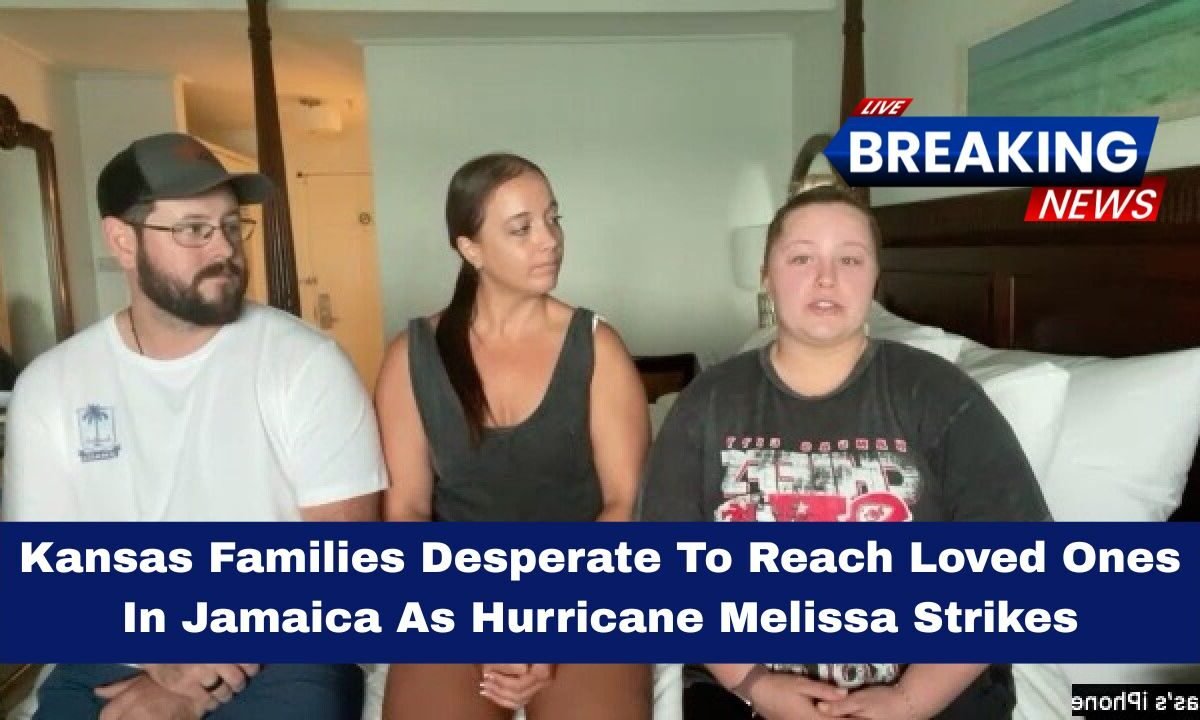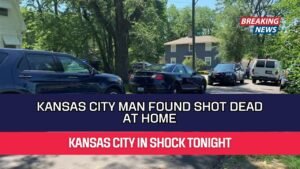Hurricane Melissa hit Jamaica with deadly force, arriving as a Category 5 storm. It brought winds estimated around 185 mph, tremendous storm surge of up to 13–18 ft in coastal zones, and widespread flooding across mountainous and low-lying regions.
The combination of torrential rain (8–16 in on average, with some areas exceeding 30 in) and falling debris caused multiple landslides.
The damage to infrastructure has been severe: power grids are down across large swaths of the island, mobile telephone towers have been knocked out, and many towns are cut off from both road and communications access.
In the US state of Kansas, especially around Wichita, families with relatives in Jamaica are finding it nearly impossible to contact them.
Phone calls fail, text messages go unanswered, video calls drop, and there’s no clarity when the communication might resume. One Wichita couple tried repeatedly via Zoom and phone to reach their loved ones in Jamaica, only to face disconnections and silence.
Key facts at a glance
| Metric | Latest snapshot |
|---|---|
| Storm status | Category 5 landfall in Jamaica |
| Max sustained winds | ~185 mph (~295 km/h) |
| Storm surge | 13–18 ft in worst hit coastal areas |
| Rainfall | 8–16 in common, with localized totals >30 in |
| Power outages | Majority of island customers affected |
| Shelters opened | 100+ across multiple parishes |
| Healthcare impacts | Hospitals damaged, evacuations underway |
| Communications status | Severe outages, calls/texts failing |
Why Kansas families cannot get through
When a storm of this magnitude strikes, everything that keeps us connected can fail. The power grid goes down, so even if a phone tower is intact, it may have no backup power.
Fiber-optic or microwave links that carry data may be severed by flooding or collapsed infrastructure.
Overloaded networks create congestion just as people are trying to reach loved ones. For families in Kansas watching their phones, the silence signals not just trouble, but a waiting game.
What Kansans can do right now
- Try SMS or instant-messaging apps rather than voice calls; short messages have a better chance of getting through in patchy conditions.
- Use voice-note or brief messages instead of full video chats—low-bandwidth contact may succeed when full video fails.
- Coordinate with any shelter, church or diaspora group in Jamaica where your loved ones might be staying; sometimes the shelter will regain power quicker than homes.
- Monitor storm updates and relief-agency bulletins for likely timelines for power and comms restoration — this gives hope during the wait.
The bigger picture
This storm is not just a local disaster—it underscores a larger trend of high-intensity storms hitting vulnerable islands.
Slow movement, extreme rainfall and intense surge combine to make recovery slow and communications tricky. On Jamaica, full service restoration may take days or even weeks in the hardest-hit regions.
For diaspora communities—like those with family in Jamaica but living in Kansas—the limbo of not knowing is especially painful.
The devastation brought by Hurricane Melissa is profound. For families in Kansas trying to reach loved ones in Jamaica, the silence on the line is terrifying—but it is a by-product of infrastructure collapse, not necessarily a sign of worse things.
Staying calm, trying multiple forms of contact, cooperating with local networks and supporting relief efforts are the best steps now.
As power and communications are restored, that call with a loved one will come through—and until then, hope and persistence must carry us forward.




